
The Max Planck Society for the Advancement of Science is a formally independent non-governmental and non-profit association of German research institutes. Founded in 1911 as the Kaiser Wilhelm Society, it was renamed to the Max Planck Society in 1948 in honor of its former president, theoretical physicist Max Planck. The society is funded by the federal and state governments of Germany.

The Max Planck Institute of Biochemistry (MPIB) is a research institute of the Max Planck Society located in Martinsried, a suburb of Munich. The Institute was founded in 1973 by the merger of three formerly independent institutes: the Max Planck Institute of Biochemistry, the Max Planck Institute of Protein and Leather Research, and the Max Planck Institute of Cell Chemistry.

The Max Planck Institute for Biophysical Chemistry, also known as the Karl-Friedrich Bonhoeffer Institute, was a research institute of the Max Planck Society, located in Göttingen, Germany. On January 1, 2022, the institute merged with the Max Planck Institute for Experimental Medicine in Göttingen to form the Max Planck Institute for Multidisciplinary Sciences.

The Max Planck Institute for Chemistry is a non-university research institute under the auspices of the Max Planck Society in Mainz. It was created as a Kaiser Wilhelm Institute in 1911.

The Max Planck Institute for the Science of Human History performs basic research into archaeological science. The institute is one of 80+ research institutes of the Max Planck Society and is located in Jena, Germany.
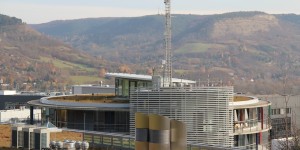
The Max Planck Institute for Biogeochemistry is located in Jena, Germany. It was created in 1997, and moved into new buildings 2002. It is one of 80 institute in the Max Planck Society.
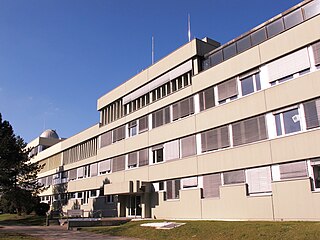
The Max Planck Institute for Radio Astronomy (MPIfRA) is located in Bonn, Germany. It is one of 80 institutes in the Max Planck Society. 50°43′47.6″N7°4′9.2″E
The Max Planck Institute of Colloids and Interfaces is located in Potsdam-Golm Science Park in Golm, Potsdam, Germany. It was founded in 1990 as a successor of the Institute for Physical Chemistry and for Organic Chemistry, both in Berlin-Adlershof, and for Polymer Chemistry in Teltow. In 1999, it transferred to newly constructed extension facilities in Golm. It is one of 80 institutes in the Max Planck Society (Max-Planck-Gesellschaft).

The Max Planck Institute for Terrestrial Microbiology is a research institute for terrestrial microbiology in Marburg, Germany. It was founded in 1991 by Rudolf K. Thauer and is one of 80 institutes in the Max Planck Society (Max-Planck-Gesellschaft). Its sister institute is the Max Planck Institute for Marine Microbiology, which was founded a year later in 1992 in Bremen.
The Max Planck Institute for Marine Microbiology is located in Bremen, Germany. It was founded in 1992, almost a year after the foundation of its sister institute, the Max Planck Institute for Terrestrial Microbiology at Marburg. In 1996, the institute moved into new buildings at the campus of the University of Bremen. It is one of 80 institutes in the Max Planck Society.
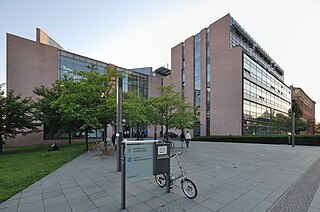
The Max Planck Institute for Infection Biology (MPIIB) is a non-university research institute of the Max Planck Society located in the heart of Berlin in Berlin-Mitte. It was founded in 1993. Arturo Zychlinsky is currently the Managing Director. The MPIIB is divided into nine research groups, two partner groups and two Emeritus Groups of the founding director Stefan H. E. Kaufmann and the director emeritus Thomas F. Meyer. The department "Regulation in Infection Biology" headed by 2020 Nobel laureate Emmanuelle Charpentier was hived off as an independent research center in May 2018. The Max Planck Unit for the Science of Pathogens is now administratively independent of the Max Planck Institute for Infection Biology. In October 2019, Igor Iatsenko and Matthieu Domenech de Cellès established their research groups at the institute, Mark Cronan started his position as research group leader in March 2020. Silvia Portugal joined the institute in June 2020 as Lise Meitner Group Leader. Two more research groups where added in 2020, Felix M. Key joined in September and Olivia Majer in October, completing the reorganization of the Max Planck Institute for Infection Biology.
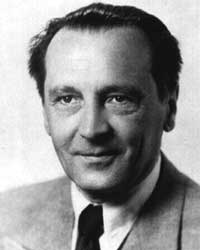
Josef Mattauch was a nuclear physicist and chemist. He was known for the development of the Mattauch-Herzog double-focusing mass spectrometer, for his work on the investigation of isotopic abundances using mass spectrometry, and the determination of atomic weights. Much of his career was spent at the Kaiser Wilhelm Institute for Chemistry.
Klaus Blaum is a German physicist and director at the Max Planck Institute for Nuclear Physics in Heidelberg, Germany.

Bill S. Hansson is a Swedish neuroethologist. From June 2014 until June 2020, he was vice president of the Max Planck Society.
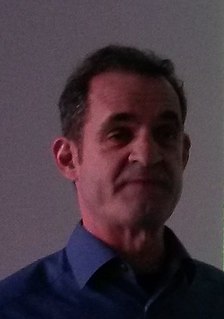
Jonathan Gershenzon is an American biochemist.
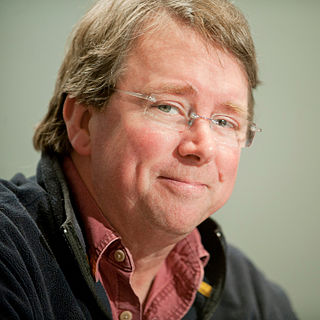
Ian Thomas Baldwin is an American ecologist.

The German Centre for Integrative Biodiversity Research (iDiv) Halle-Jena-Leipzig is a DFG research center with staff and members at its main locations in Halle, Jena and Leipzig. It is a central facility of Leipzig University, and is run together with the Martin Luther University Halle-Wittenberg and Friedrich Schiller University Jena, as well as in cooperation with the Helmholtz Centre for Environmental Research - UFZ. In addition, seven non-university research institutions belong to the iDiv consortium. iDiv was founded in 2012 and is funded by the DFG.
The International Max Planck Research School for Organismal Biology is a structured doctoral program of the Max Planck Institute for Ornithology in Seewiesen (Pöcking) and Radolfzell and the department of Biology of the University of Konstanz. Its goal is to provide training and education to PhD students from over the world in a work environment. Research focuses on behavioral science, ecology, evolutionary biology, physiology and neurobiology. The IMPRS for Organismal Biology was founded in 2009. In October 2010, the first 30 doctoral students began their research. The faculty consists of more than 30 leading scientists from the Max Planck Institute for Ornithology and the Department of Biology from the University of Konstanz.
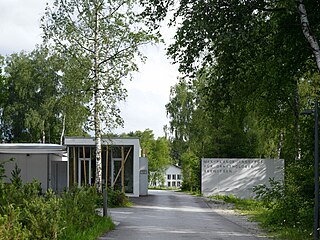
The Max Planck Institute for Ornithology is a non-university research institution under the sponsorship of the Max Planck Society for the Advancement of Science (MPG). It is located in Seewiesen, which belongs to the municipality of Pöcking in Upper Bavaria. The institute’s focus lies on basic scientific research in the fields of organismic biology, zoology, ornithology, neurobiology, behavioural ecology, evolutionary biology and evolutionary genetics. The institute is managed on a collegial basis, i.e. one of the two directors of the institute takes over the management for a certain time period. Since January 2020, the managing director is Bart Kempenaers.
Martin Kaltenpoth is a German evolutionary ecologist.















